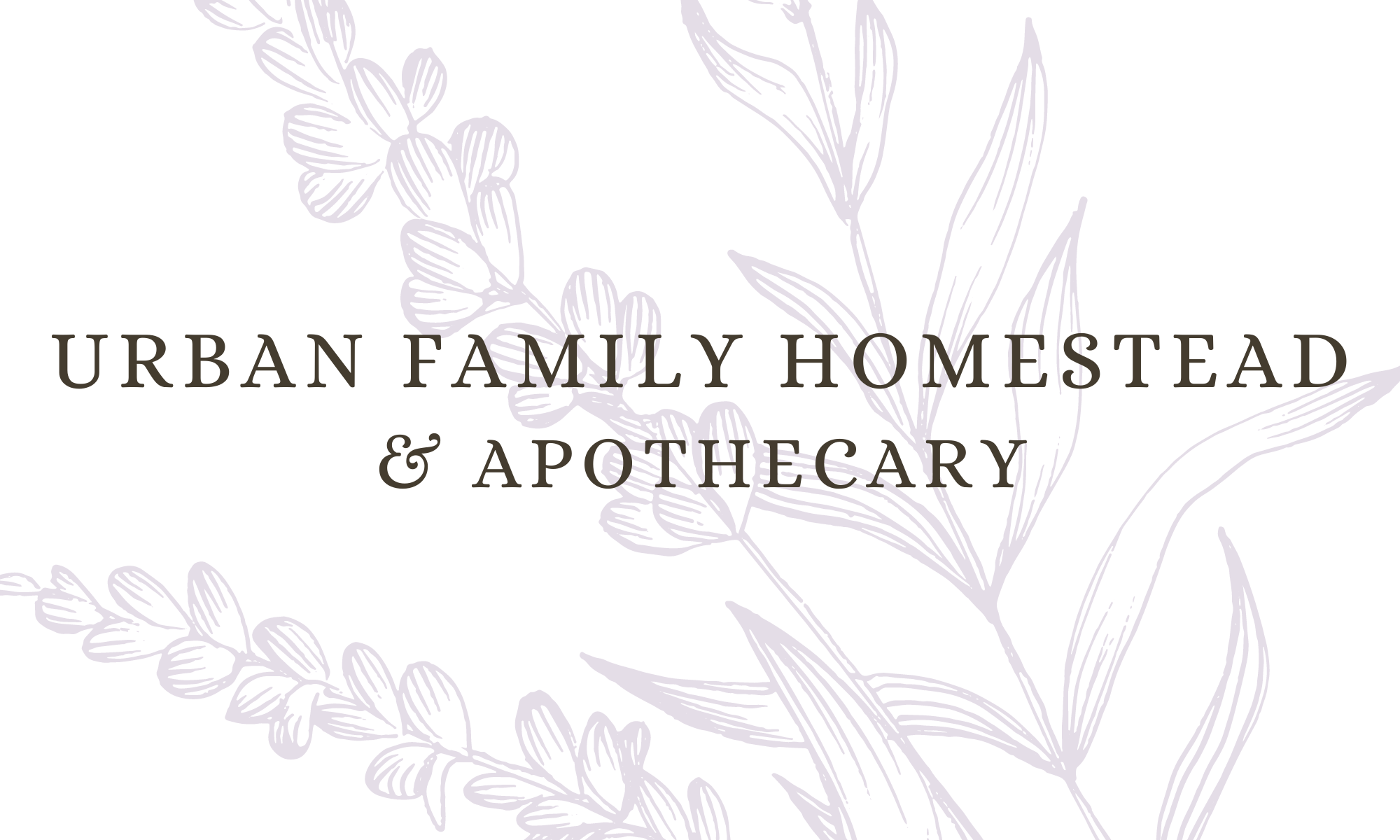Having a small stocked home apothecary is a helpful tool to have in every home. They are safe and effective ways to treat minor cuts and abrasions as well as sicknesses that come up throughout the year!

Every winter I fervently dream and plan up my garden that I will start in the spring to jumpstart the summer growing season. Every winter I plan more than I can do…but what’s the fun in dreaming if you can’t dream big? Every year is an experiment to say the least and every summer there is as much disappointment as there is joy and surprise when I grow. Mother Nature will do as Mother Nature wants. That is part of the magic and enjoyment in growing a garden. This year I expanded my garden boxes by double. I ended up with 13 boxes exactly, which was a happy accident as my favorite number is none other than…. 13.
NEW FAVORITES
This year I ended up with mullein, echinacea, chocolate peppermint, calendula, dill, and many more. I decided to venture out and try my hand at Tulsi, also known as Holy/Sacred Basil, and found a new favorite herb for tea. Sacred Basil is an herb that has many benefits including treating respiratory issues, headaches, and is a fabulous anti-inflammatory. As someone with the beginning stages of arthritis, I was elated to find this out. This beautiful smelling plant grew despite my unintentional planting of too many tomato plants, enough to choke out anything, right next to them, grew bountifully.

My other favorite thing I grew, another happy surprise, was a load of sunflowers. Every single one of them planted in the main beds were volunteer flowers. Last year I made the mistake of leaving the sunflower heads on (full of seeds), while doing the ‘chop and drop’ method of composting the leftover flowers. This, along with the crows and squirrels dropping them in the nearby beds, led to a summer full of dozens of sunflower heads. Wanting to fill my home apothecary with new herbs, I decided to research the uses of sunflowers. Turns out there are many great uses for sunflower petals including being a potent anti-inflammatory. Not only is it good in tea, but as a salve to treat cuts and burns. Great to stock up your first aid kit with!
PLANNING IT OUT
When you think of what you want to stock your home apothecary with, you should think of the needs you have for your family specifically. Do you have little kids that need kids safe herbs to treat coughs and colds? Kiddos can be quite adventuresome and having a good boo-boo balm around can help sooth cuts and burns. Maybe someone in your family has a lot of allergies in the spring, planting and harvesting herbs to prevent and treat those annoying sniffles might be something that is a must in your house.

An easy way to go about this is to look at your medicine cabinet. Do you stockpile tums? Ibprophen? Another over the counter you would like to replace? There of course is a time and place for western medicine but herbs can be as or more effective in many instances. Many herbs can also be used as a support to prevent illness. I encourage you to do some research and pick 4 or 5 things you would like to replace or add to your arsenal of remedies and learn about those herbs in detail. When do they grow best in your area, how to grow them, how to harvest, and prepare them, are all great questions to take notes on.
FIVE STARTER HERBS
My favorite beginner herbs to start with are chamomile, tulsi, calendula, peppermint, and mullein. Chamomile is great to calm nerves, prepare your body to sleep, as well as soothe tummy aches and the gastrointestinal tract. Tulsi is a great anti-inflammatory for achy bones, as well as a respiratory helper. Calendula, while it makes a wonderful tea, is a potent topical to use in a salve for abrasions. Peppermint is a favorite as it grows exceedingly easy in most areas, and a favorite with a bit of honey to soothe belly aches and nausea. Mullein is a powerful herb for coughs and colds. All of these herbs will grow easily in the late spring and all throughout the summer in full or partial sun. Seeds can be easily found as well as starts at your local farmer’s market. While these herbs all make excellent teas, you can infuse them into oil for topical salves, or infuse them into honey for culinary uses.
No matter what you start with, starting small is always advisable so you don’t get overwhelmed. I also recommend writing down your research in a book or journal meant just for herbs. This can be your go to for growing, what worked, what didn’t, and you can even add in recipes whether they are your own or one you found that you love. Happy planting!


